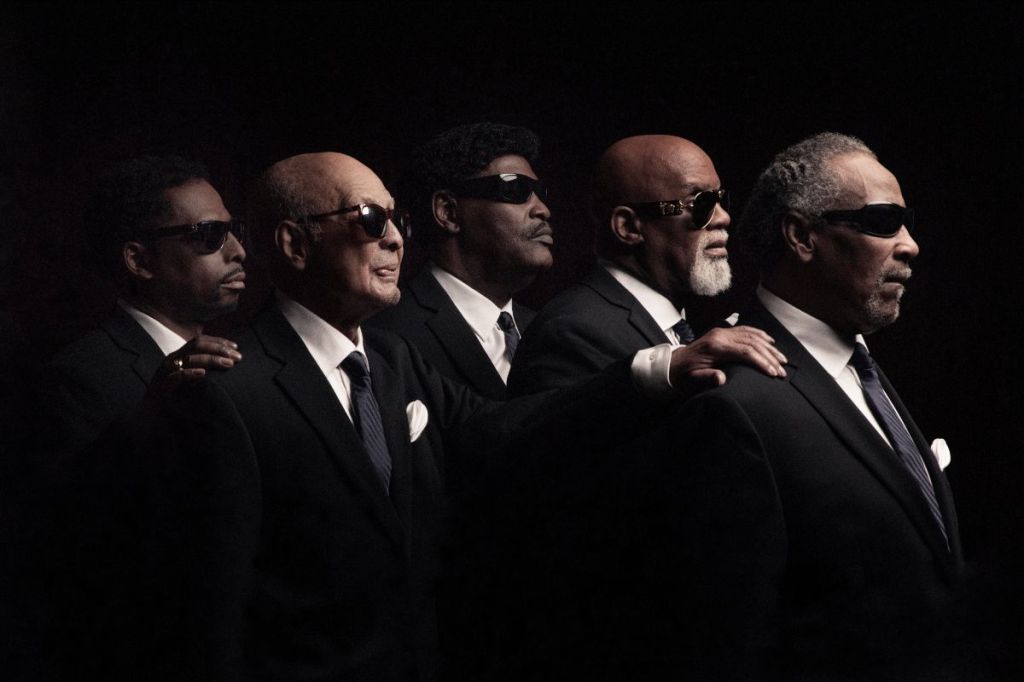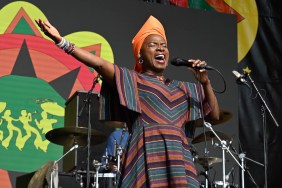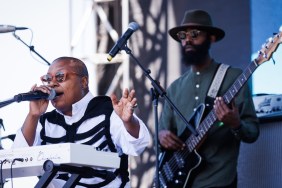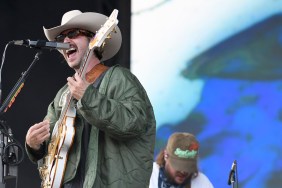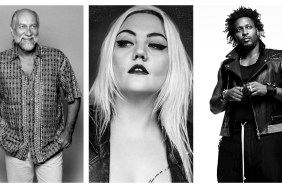The Blind Boys of Alabama have a long and illustrious history. Clarence Fountain formed the group in Talladega, Alabama in 1939. Under Fountain’s leadership, the Blind Boys began releasing albums of gospel music in the late 1940s.
The group’s seen numerous members come and go over the years. Fountain remained the focus until poor health forced him to take a rest in 2007. He came back for the 2017 album Almost Home, but passed away the following year aged 88.
The Blind Boys’ current iteration revolves around vocalists Jimmy Carter, Ricky McKinnie, Ben Moore and Paul Beasley, with guitarist Joey Williams. McKinnie and Carter have been with the group for nearly 40 years, during which time they’ve released a staggering number of albums and performed for not one but three US Presidents (Clinton, Bush Jr. and Obama).
While gospel remains the Blind Boys’ forte, they’ve also made a habit of working with contemporary blues, roots and rock artists. For instance, the 2009 album Duets features Lou Reed, Susan Tedeschi, Bonnie Raitt and Toots Hibbert (of the Maytals fame). The Blind Boys backed Ben Harper on his 2004 album There Will Be a Light and Bon Iver’s Justin Vernon produced the band’s 2013 album, I’ll Find a Way.
The Blind Boys of Alabama are in the country for a run of headline dates this month as well as appearances at WOMADelaide, Port Fairy Folk Festival and Brunswick Music Festival. Music Feeds spoke to McKinnie about his relationship with Fountain, the band’s latest album and the importance of community.
https://youtu.be/Bss2-E0Oj3o
Music Feeds: You’ve been to Australia on multiple occasions. What are your memories of performing over here?
Ricky McKinnie: We love Australian audiences and they love us, so it all works together.
MF: I can’t think of any other bands that have existed for as long as the Blind Boys of Alabama or released as many albums as you have. What’s in the repertoire for the current tour?
RM: We’re playing songs from our new record. We’re also playing some of our old songs, like from Ben Harper, Curtis Mayfield. We’re doing all the songs that the people love to hear. We’re doing ‘Look Where He Brought Me From’, ‘Amazing Grace’ – just the songs that people can relate to and make you feel good when you’re feeling bad.
MF: Your latest album is Work to Do with Marc Cohn. It includes a number of songs written by Cohn as well as standards like ‘Walk In Jerusalem’ and ‘Amazing Grace’. What’s your history with Marc Cohn?
RM: Marc Cohn was introduced to us by our manager and we found out that he is a really wonderful gentleman to work with. He came on tour with us for a few weeks, but we ended up staying some months and doing a record with him. We have become good friends.
MF: You’ve worked with a wide variety of musicians, from Ben Harper to Peter Gabriel, Lou Reed and Amadou & Mariam. Most recently you appeared on Nashville singer-songwriter Kristen Englenz’s song ‘Pray For Rain’. What does it take to convince you to work with someone?
RM: As long as the song sounds good, the song lyrics we don’t mind singing. But the main thing we have found out through the years is that people need people and working together does work.
MF: Does that philosophy apply to everything the Blind Boys do? Are you trying to create a community around your music?
RM: Exactly, because music makes the world go ’round.
MF: You’ve been involved in music since long before you were a member of the Blind Boys of Alabama. Has music always been a major part of your life?
RM: Music started out in my home. My mother was a professional gospel singer, Sarah McKinnie Shivers. From there I wanted to be a part of it. My grandfather, he sung hymns and anthems and music was always around me.
MF: Gospel music is what the Blind Boys are best known for. Do you think gospel has a unique power?
RM: I think that gospel music is the root of all music that I have been involved with, but I realise that what’s from the heart reaches the heart. And any time you can touch the soul, that’s what it’s all about.
MF: You met Clarence Fountain at a really young age – long before you joined the band. Was he a big inspiration for you as a musician and an individual?
RM: I met Clarence when I was four years old. As I said, my mother was a gospel singer so that’s how I met Clarence. Clarence was a big part of my life. He was an innovator, he was an entertainer and then he was the motivator. All those things made Clarence Fountain who he was. He was like me in a way – he wasn’t blind, he just couldn’t see.
MF: When Clarence asked you to officially join the Blind Boys, was that a big honour for you?
RM: It was an honour for me to be a member of the Blind Boys. I had been working with them since I was about 20 years old on and off, but they needed somebody to come in and play drums that could sing vocals.
By then I had my own group that was doing good, the Ricky McKinnie Singers, and I was playing for Thomas A. Dorsey’s nephew’s church. His name was BJ Johnson Jr. and he had a church in Atlanta called the Greater Mount Calvary. But I always wanted to travel all over the world. I loved the Blind Boys and what they were doing, so I felt proud to come over here to be a part of that.
MF: You’ve stepped out from behind the drum kit to become one of the group’s main vocalists in recent years. Are you enjoying being out front?
RM: One of our members passed away, Bishop Billy Bowers, and that gave me the opportunity to come up front into a main role, and I feel good about it. Billy was one of my closest friends and to be able to sit in his seat has been a real, rare joy.
MF: You said that Clarence wasn’t blind, he just couldn’t see. You have spoken in the past about how visual impairment isn’t a handicap. Do you think this is an important distinction?
RM: A disability is just a limitation and we all have limitations. So I found out that, like Clarence, I’m not blind I just can’t see. I might have lost my sight, but I never lost my direction. And I’ve always said that if you can dream the dream, do the work and keep the faith, everything will be all right.
MF: In terms of making records, travelling the world and performing, what gives you the motivation to keep going?
RM: Every time a young child of 7-8 or a teenager, 16-17, comes up to me and their parents say that they wanted to come see the Blind Boys, that makes me know that God is still working miracles. He’s still opening doors for the Blind Boys.
When someone comes up and they say “Your music has allowed me to go forward in my life. I felt like giving up, but your music made me strong,” those are the times when… I might get a little weak, but the message of the people keeps me going.
MF: Ricky, thanks so much for talking to me.
RM: You let the people know, don’t miss it when the boys are back in town.
–
The Blind Boys of Alabama are touring Australia this month, taking in WOMADelaide, Port Fairy Folk Festival, Brunswick Music Festival as well as an intimate, sold-out performance at Pitt Street Uniting Church in Sydney, tonight. Tour details below.
The Blind Boys of Alabama 2020 Australian Tour
Wednesday, 4th March
Pitt Street Uniting Church, Sydney
SOLD OUT
Friday, 6th March – Saturday, 7th March
WOMADelaide
Tickets: WOMADelaide
Sunday, 8th March – Monday, 9th March
Port Fairy Folk Festival
Tickets: Port Fairy Folk Festival
Wednesday, 11th March
Theatre Royal, Castlemaine
SOLD OUT
Thursday, 12th March
Brunswick Music Festival, Melbourne
Tickets: Oztix
Saturday, 14th March – Sunday, 15th March
WOMAD, New Zealand
Tickets: WOMAD
